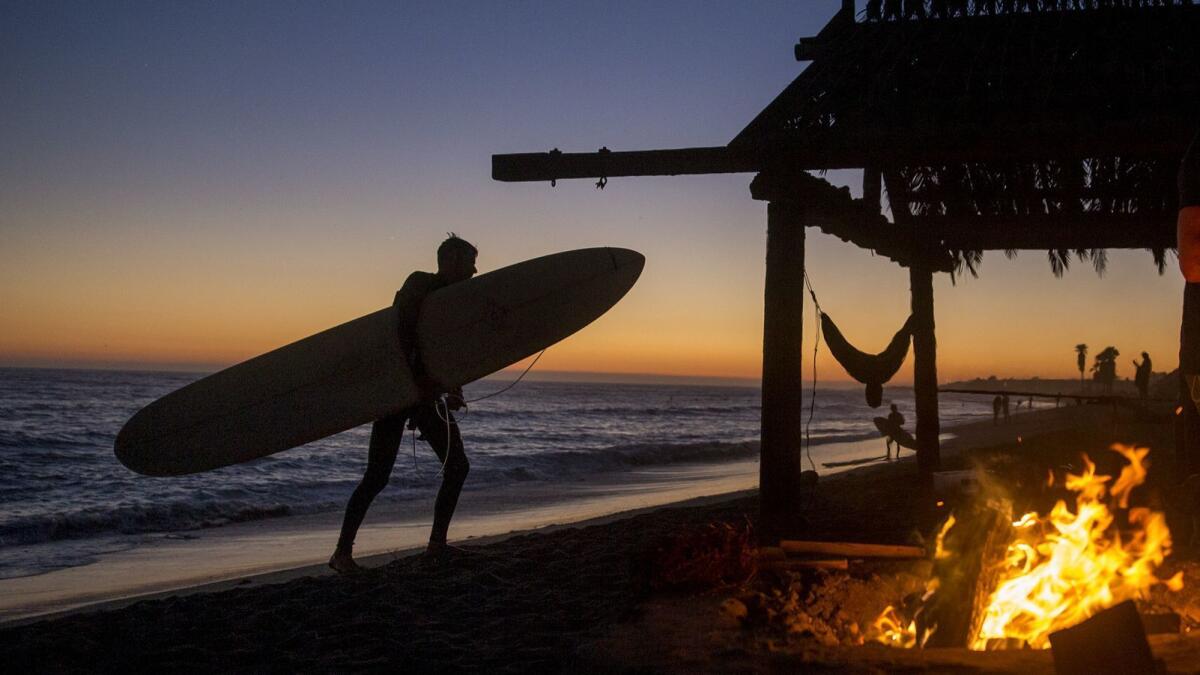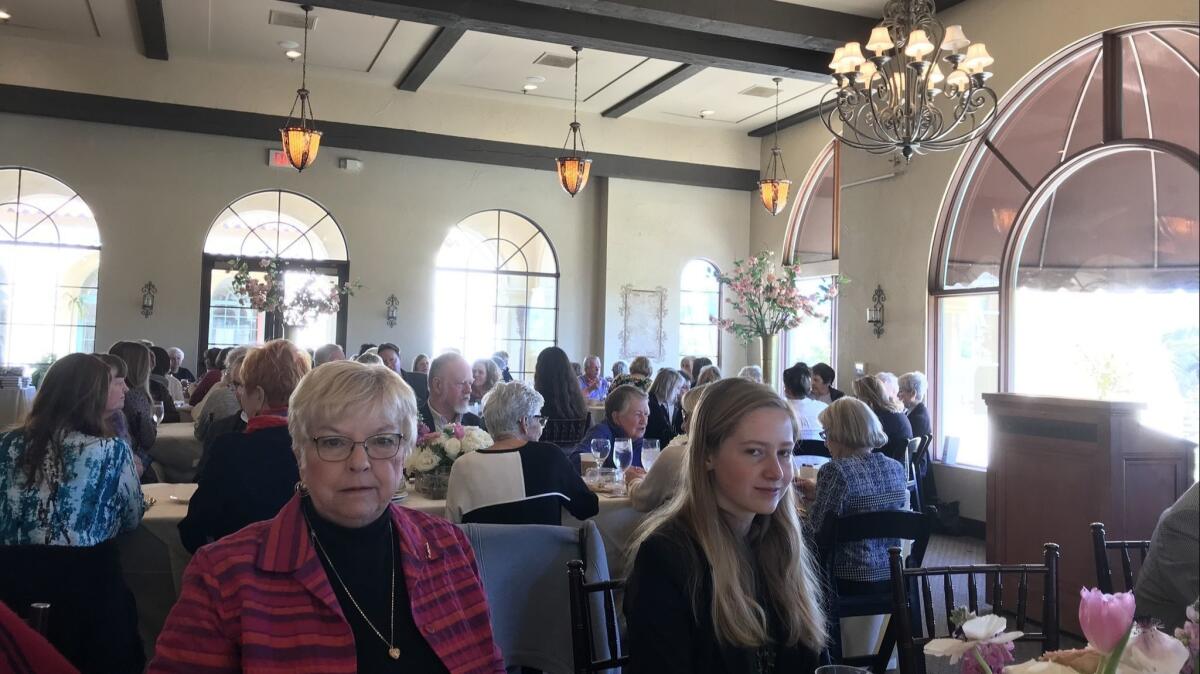The Middle Ages: My reflections on the left coast: Out here, even the corpses look better

I was at a luncheon in San Clemente, one of the best beach towns in all the world.
“It’s a little older crowd,” my lunch mate noted of San Clemente’s populace, to which I responded: “That’s probably why I like it.”
I also admire how the sun pings off of San Clemente, like strobe lights off an Oscar gown.
You can keep Venice — atrocious parking and too many of those angled streets that play board games with my brain.
My beloved Santa Monica? I’ll never say a single bad thing about that maddening, overpriced place, except that it seems to grow hipper by the minute, as I personally accelerate toward death. Best-case scenario, I have 20 years left; worst case, 40. I’d rather go too soon than linger, like a bad party guest, too long.
But back to San Clemente. I take a naked, judgmental view of every place I visit; that’s sort of my nature, and it prevents repeated mistakes to inferior destinations.
I keep coming to San Clemente to give little talks about the art of writing. It’s important for writers to do this. In my own case, I do it to discourage others from becoming writers. It’s a lonely life. Besides, who needs the competition?
“Books and people,” I tell the luncheon crowd, “are the only endlessly interesting things I know.”
The audience members nod, as if I’m making any sense whatsoever. That’s what I like about the Clementeians: They’re nodders. Back at the house, all I get is doubting scoffs from the kids when I say something remotely profound. They are skeptics, which is how I raised them. Now I’m paying the price.

At the Friends of the Library luncheon, though, they’re far more receptive to my outlandish takes on life. I tell stories about my recent journey to the heartland, about how my brain kept freezing midsentence and the way the snowflakes stuck to the locals’ eyelashes, nearly seducing me into moving back.
Chicagoans are a prideful bunch; they have their Cubs and their folk music and their lousy weather to unite them. Misery seems a running theme there, but it’s a more humble place than L.A., and far tougher and less-tolerant of kooks. Which is maybe why I had to leave.
Gawd, I miss Chicago; gawd, I love L.A. In conclusion, you can crush on two cities at once. Neither ever bores or disappoints me. I probably like them best for their sense of place.
At the luncheon, another table mate asks about my fondness for Yiddish, and I explain that I hail from a little suburb that was very diverse.
Back then, of course, diversity meant you had a bundle of Methodists, a sprinkling of Lutherans, a Presbyterian and a half, and they generally got along, even if they didn’t — deep down — care for each other all that much.
I have no basis for this, but I think the Jews and the Irish are kindred spirits — vocal, spirited and with a history of geographical challenges.
“I actually came to L.A. to study Yiddish,” I tell my lunch mate, and she nods.
I stay in L.A. for the sunshine, and that becomes a theme of Saturday’s luncheon — the positive influence of a simple sunny day.
“I have to see the ocean about once a month, or I go a little nuts,” I tell someone, and she tilts her head slightly, in that way that says, “Wait, you’re already a little nuts.” In the Midwest, they’d blurt that right out. Here, they have the decency to merely tilt their heads.
One thing I gleaned from the luncheon is that Californians are a prideful bunch as well. One attendee told the story of a Midwestern undertaker who moved his business here, and how he was immediately struck by how much better the corpses looked.
Let that sit a second.
Then, as if to amplify on the whole “climate-is-life” theme, local boy T. Jefferson Parker spoke about writing, in ways far better than I ever could.
Parker talked about getting started as a novelist, a generally difficult task. His first book sounded like Hemingway, and his follow-up attempts sounded like knockoffs as well.
To find his own “voice,” Parker decided to write a great opening sentence that sounded like him, then use that as the tonal template for the entire book.
That became his first novel, a major hit called “Laguna Heat,” a psalm to bejeweled beach towns like this one, seared by the sun and soothed by the sea.
Parker’s opening line: “A perfect morning in a city of perfect mornings, an artist would have worked, a god would have rested.”
What a place.
Twitter: @erskinetimes
More to Read
Sign up for our Book Club newsletter
Get the latest news, events and more from the Los Angeles Times Book Club, and help us get L.A. reading and talking.
You may occasionally receive promotional content from the Los Angeles Times.









